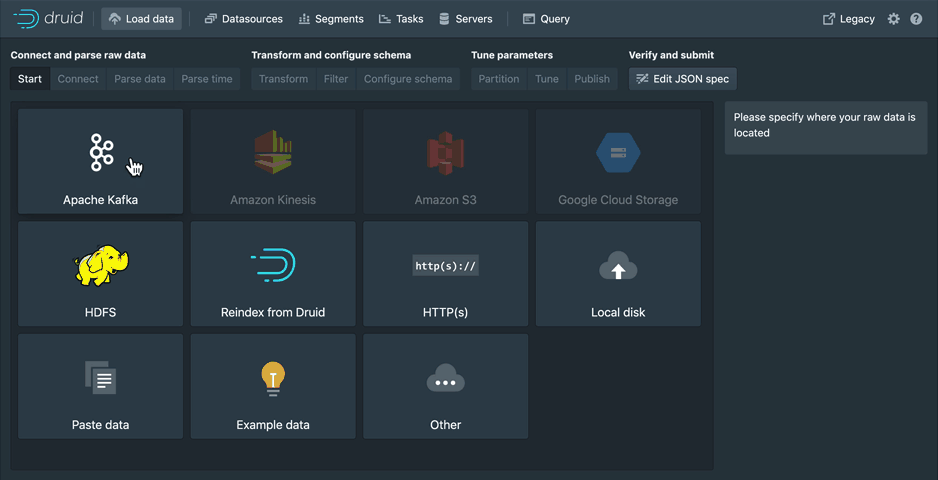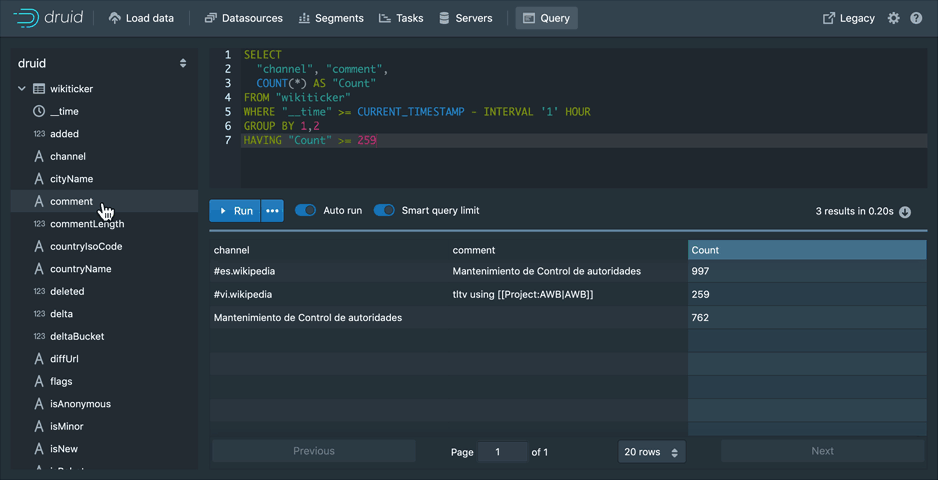* Always use file sizes when determining batch ingest splits. Main changes: 1) Update CloudObjectInputSource and its subclasses (S3, GCS, Azure, Aliyun OSS) to use SplitHintSpecs in all cases. Previously, they were only used for prefixes, not uris or objects. 2) Update ExternalInputSpecSlicer (MSQ) to consider file size. Previously, file size was ignored; all files were treated as equal weight when determining splits. A side effect of these changes is that we'll make additional network calls to find the sizes of objects when users specify URIs or objects as opposed to prefixes. IMO, this is worth it because it's the only way to respect the user's split hint and task assignment settings. Secondary changes: 1) S3, Aliyun OSS: Use getObjectMetadata instead of listObjects to get metadata for a single object. This is a simpler call that is also expected to be less expensive. 2) Azure: Fix a bug where getBlobLength did not populate blob reference attributes, and therefore would not actually retrieve the blob length. 3) MSQ: Align dynamic slicing logic between ExternalInputSpecSlicer and TableInputSpecSlicer. 4) MSQ: Adjust WorkerInputs to ensure there is always at least one worker, even if it has a nil slice. * Add msqCompatible to testGroupByWithImpossibleTimeFilter. * Fix tests. * Add additional tests. * Remove unused stuff. * Remove more unused stuff. * Adjust thresholds. * Remove irrelevant test. * Fix comments. * Fix bug. * Updates. |
||
|---|---|---|
| .github | ||
| .idea | ||
| benchmarks | ||
| cloud | ||
| codestyle | ||
| dev | ||
| distribution | ||
| docs | ||
| examples | ||
| extensions-contrib | ||
| extensions-core | ||
| helm/druid | ||
| hooks | ||
| indexing-hadoop | ||
| indexing-service | ||
| integration-tests | ||
| integration-tests-ex | ||
| licenses | ||
| processing | ||
| publications | ||
| server | ||
| services | ||
| sql | ||
| web-console | ||
| website | ||
| .asf.yaml | ||
| .backportrc.json | ||
| .codecov.yml | ||
| .dockerignore | ||
| .gitignore | ||
| .lgtm.yml | ||
| CONTRIBUTING.md | ||
| LABELS | ||
| LICENSE | ||
| NOTICE | ||
| README.md | ||
| README.template | ||
| check_test_suite.py | ||
| check_test_suite_test.py | ||
| it.sh | ||
| licenses.yaml | ||
| owasp-dependency-check-suppressions.xml | ||
| pom.xml | ||
| upload.sh | ||
README.md
Apache Druid
Druid is a high performance real-time analytics database. Druid's main value add is to reduce time to insight and action.
Druid is designed for workflows where fast queries and ingest really matter. Druid excels at powering UIs, running operational (ad-hoc) queries, or handling high concurrency. Consider Druid as an open source alternative to data warehouses for a variety of use cases. The design documentation explains the key concepts.
Getting started
You can get started with Druid with our local or Docker quickstart.
Druid provides a rich set of APIs (via HTTP and JDBC) for loading, managing, and querying your data. You can also interact with Druid via the built-in web console (shown below).
Load data
Load streaming and batch data using a point-and-click wizard to guide you through ingestion setup. Monitor one off tasks and ingestion supervisors.
Manage the cluster
Manage your cluster with ease. Get a view of your datasources, segments, ingestion tasks, and services from one convenient location. All powered by SQL systems tables, allowing you to see the underlying query for each view.
Issue queries
Use the built-in query workbench to prototype DruidSQL and native queries or connect one of the many tools that help you make the most out of Druid.
Documentation
See the latest documentation for the documentation for the current official release. If you need information on a previous release, you can browse previous releases documentation.
Make documentation and tutorials updates in /docs using MarkDown and contribute them using a pull request.
Community
Visit the official project community page to read about getting involved in contributing to Apache Druid, and how we help one another use and operate Druid.
- Druid users can find help in the
druid-usermailing list on Google Groups, and have more technical conversations in#troubleshootingon Slack. - Druid development discussions take place in the
druid-devmailing list (dev@druid.apache.org). Subscribe by emailing dev-subscribe@druid.apache.org. For live conversations, join the#devchannel on Slack.
Check out the official community page for details of how to join the community Slack channels.
Find articles written by community members and a calendar of upcoming events on the project site - contribute your own events and articles by submitting a PR in the apache/druid-website-src repository.
Building from source
Please note that JDK 8 or JDK 11 is required to build Druid.
See the latest build guide for instructions on building Apache Druid from source.
Contributing
Please follow the community guidelines for contributing.
For instructions on setting up IntelliJ dev/intellij-setup.md


























